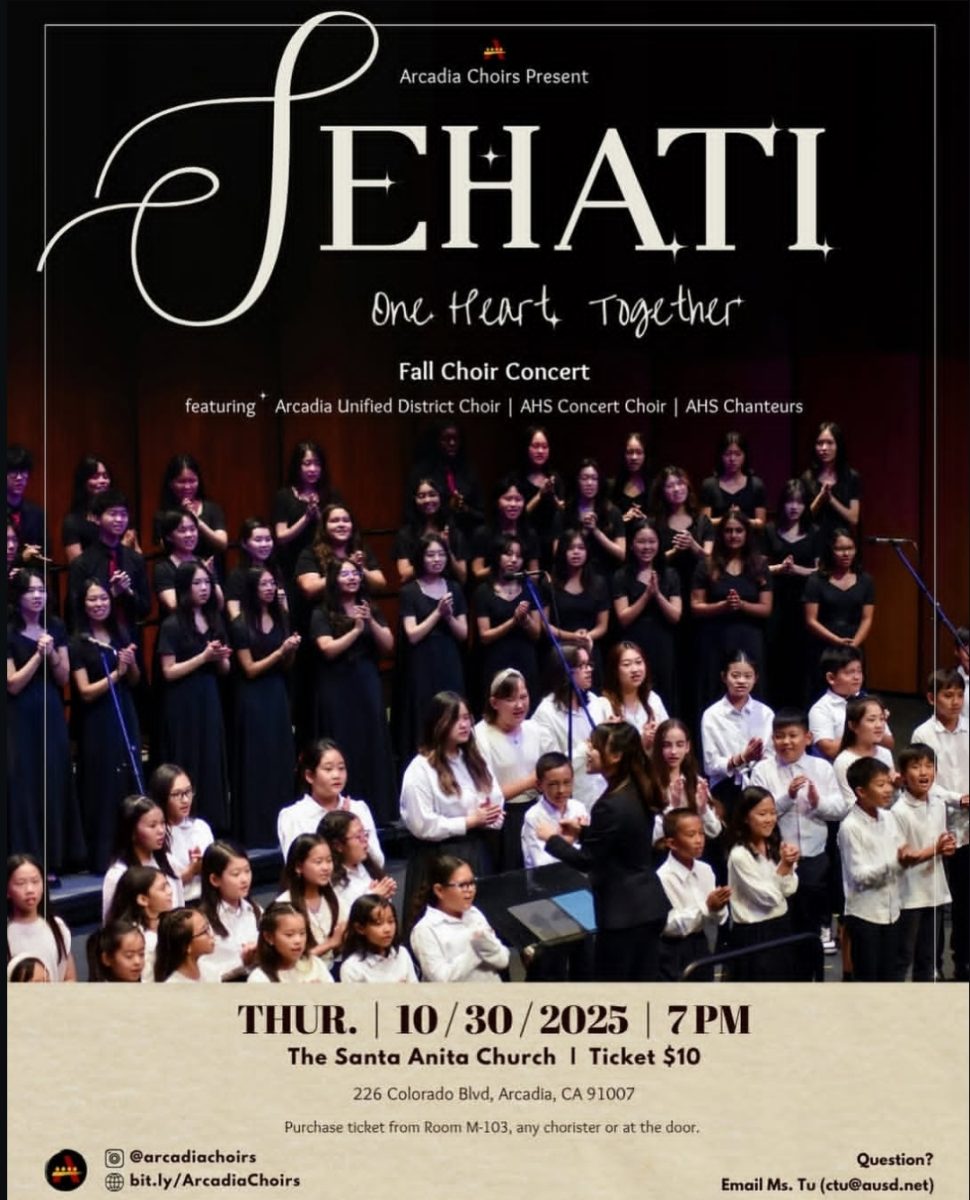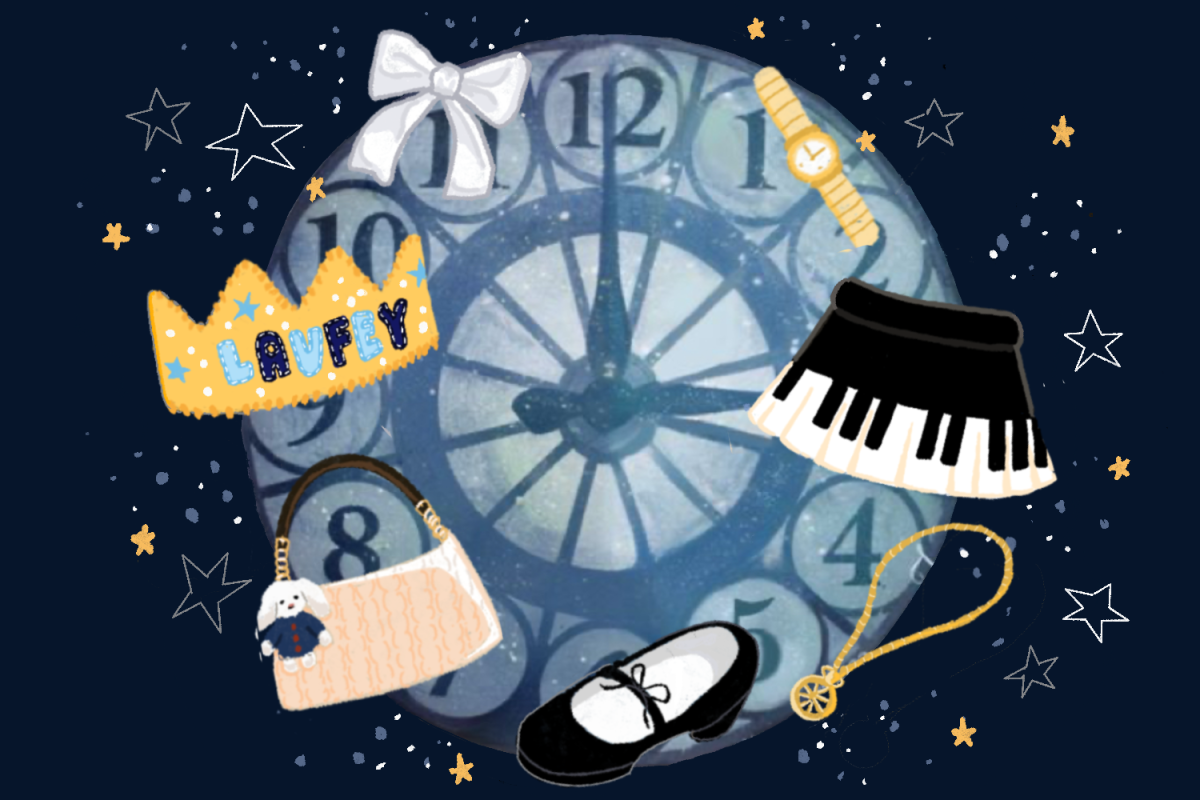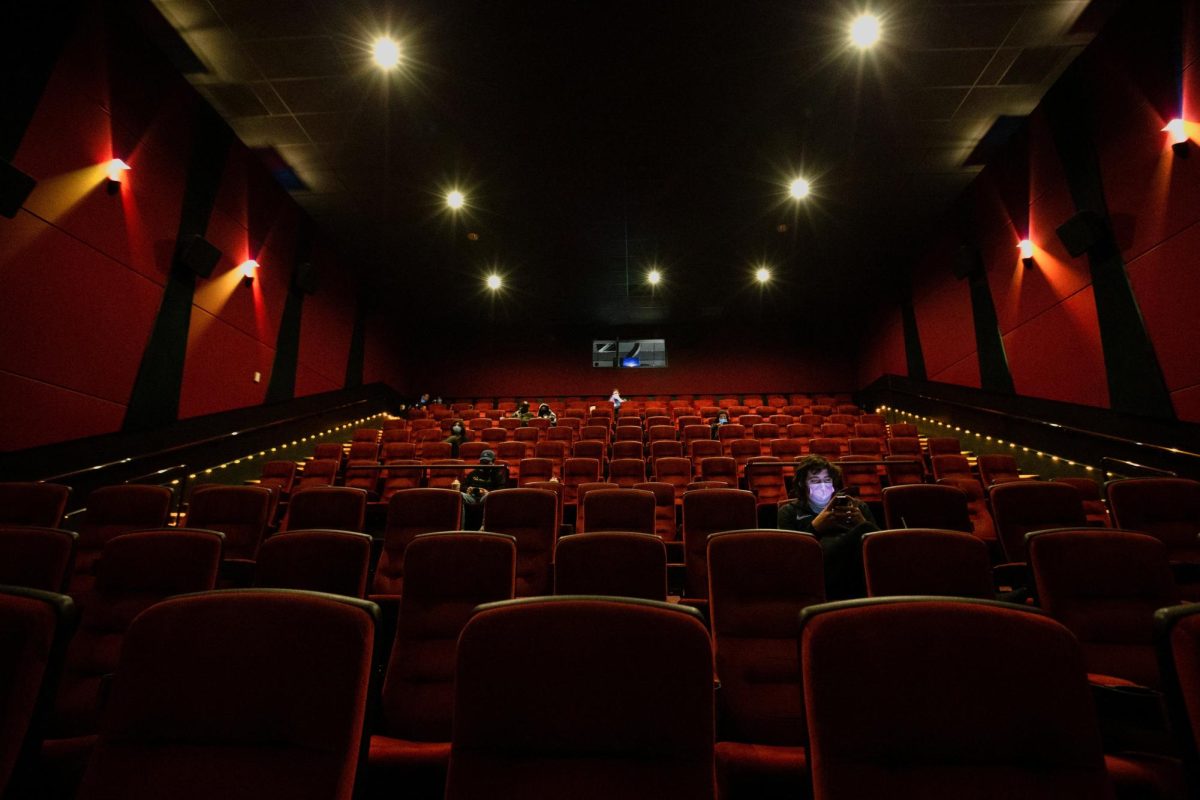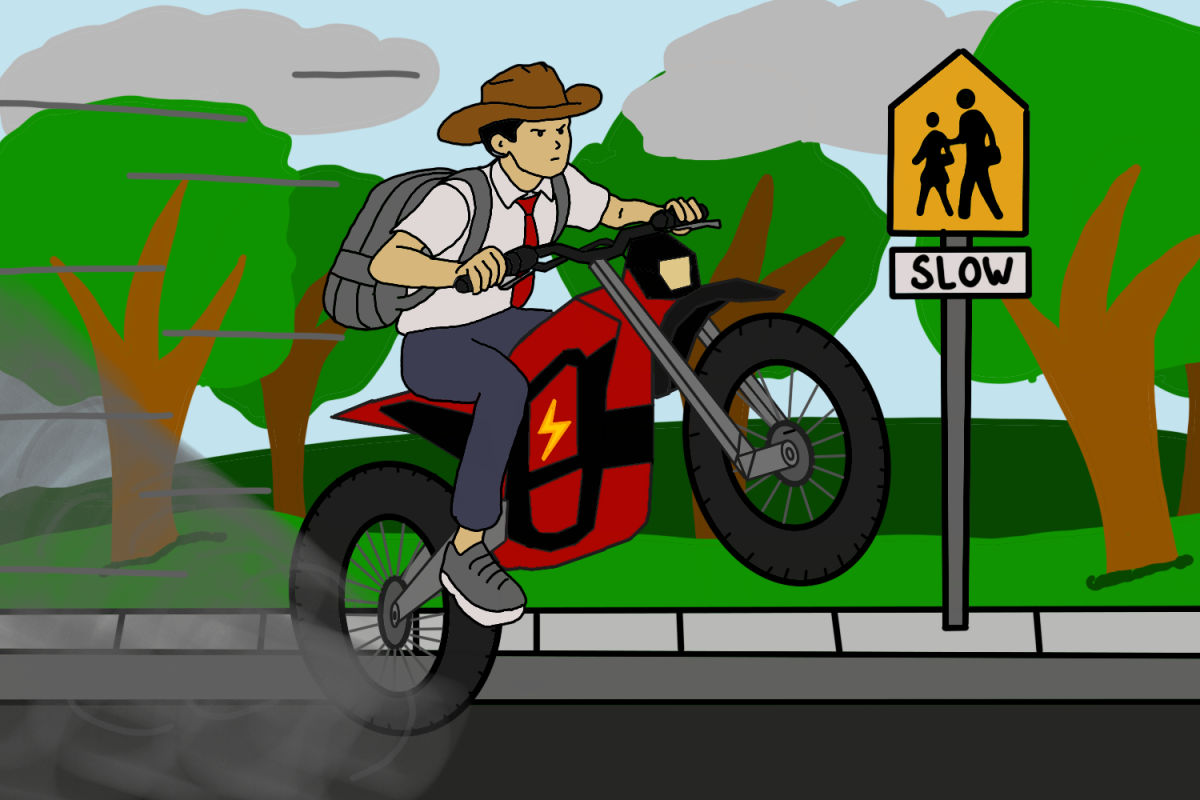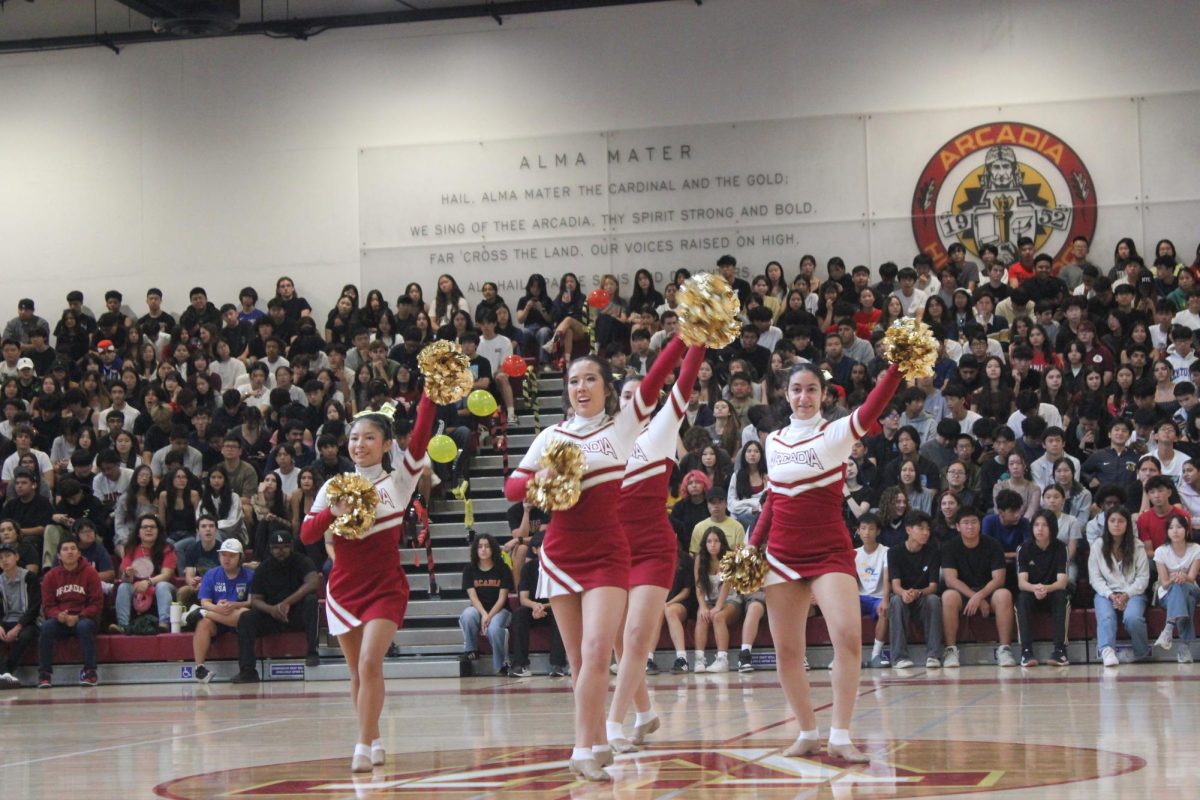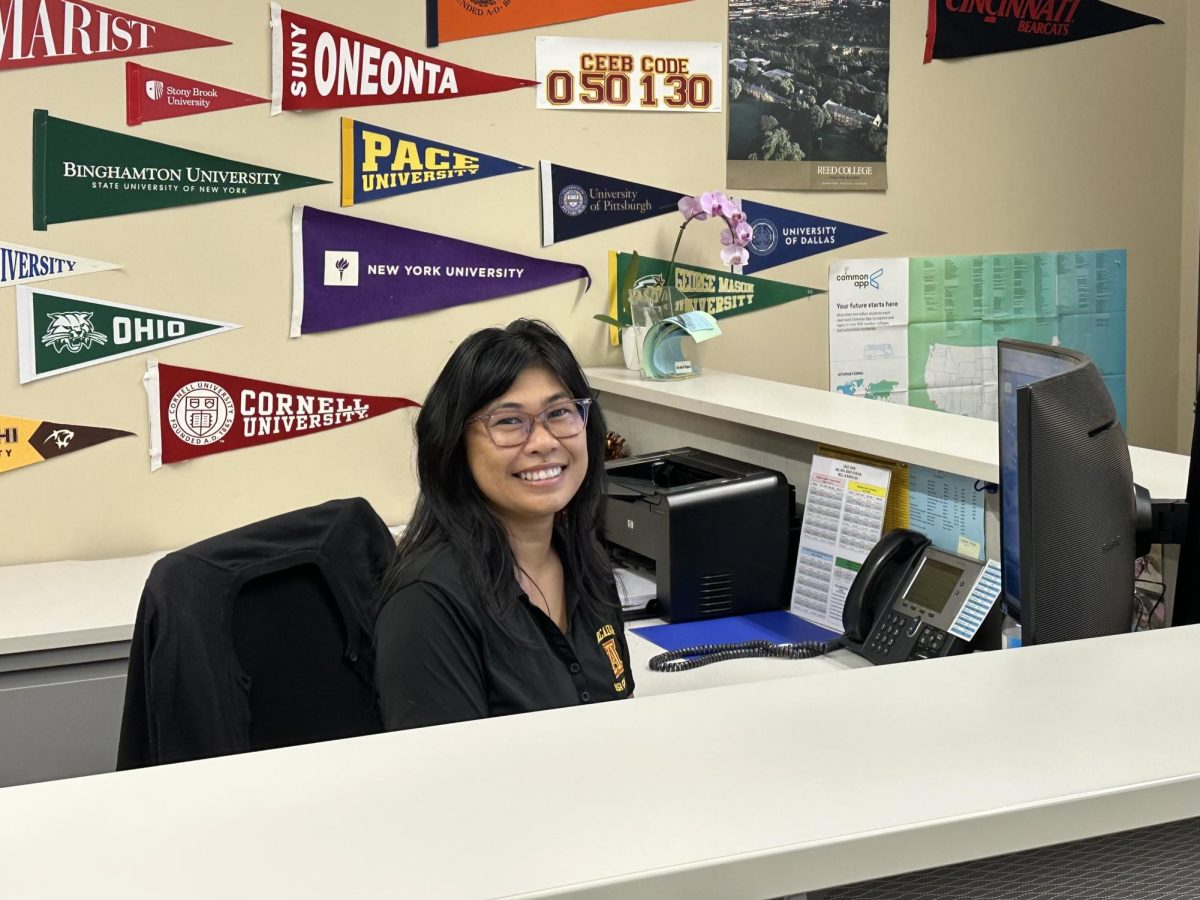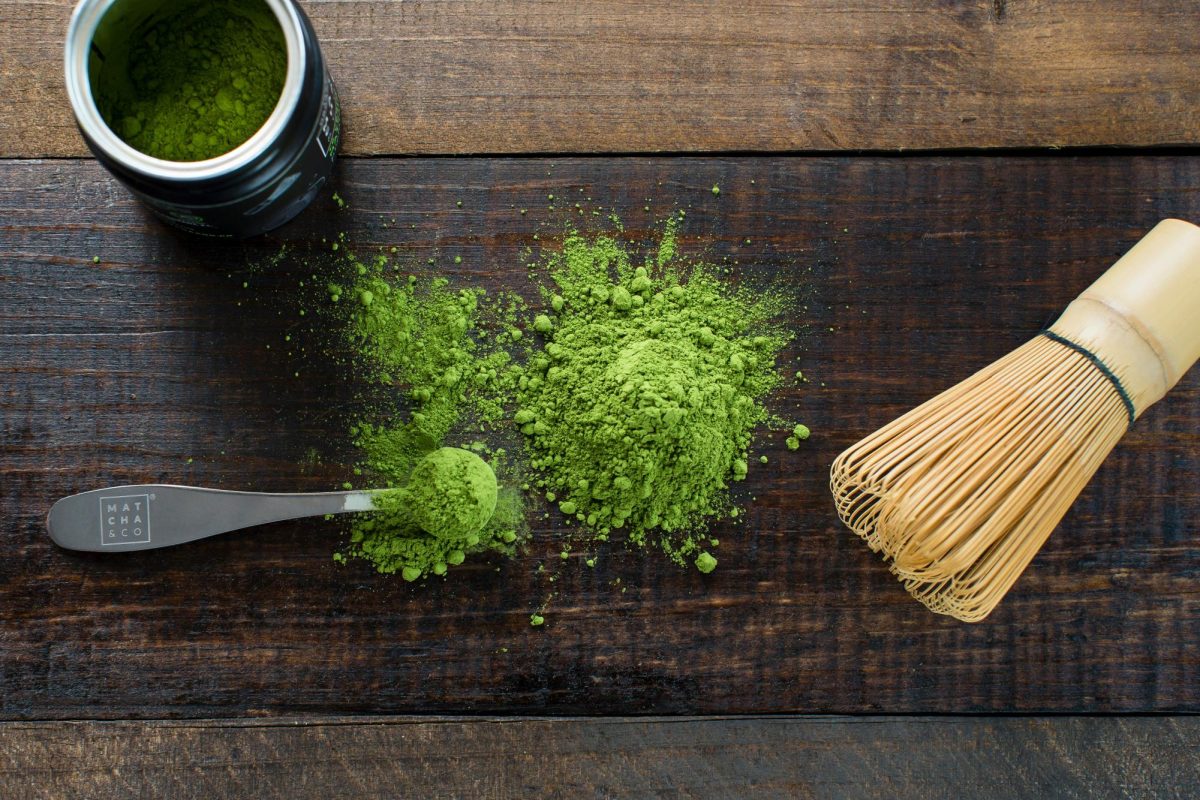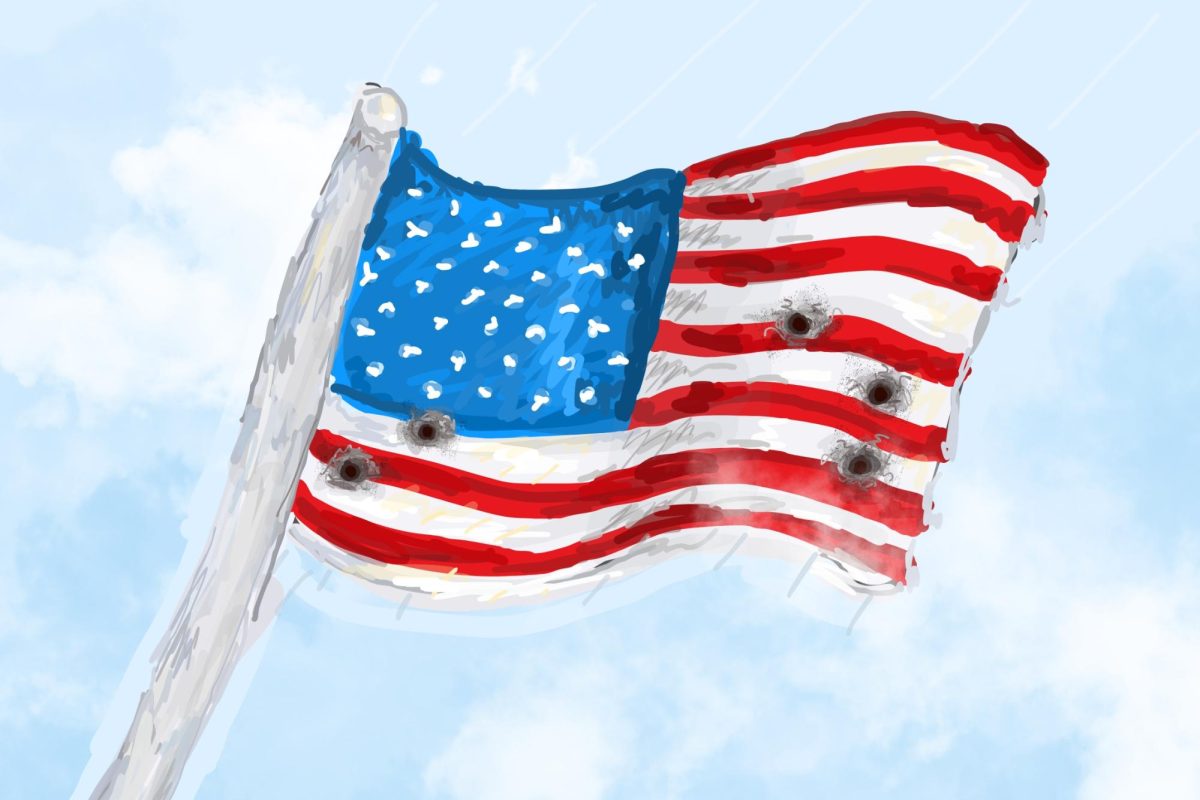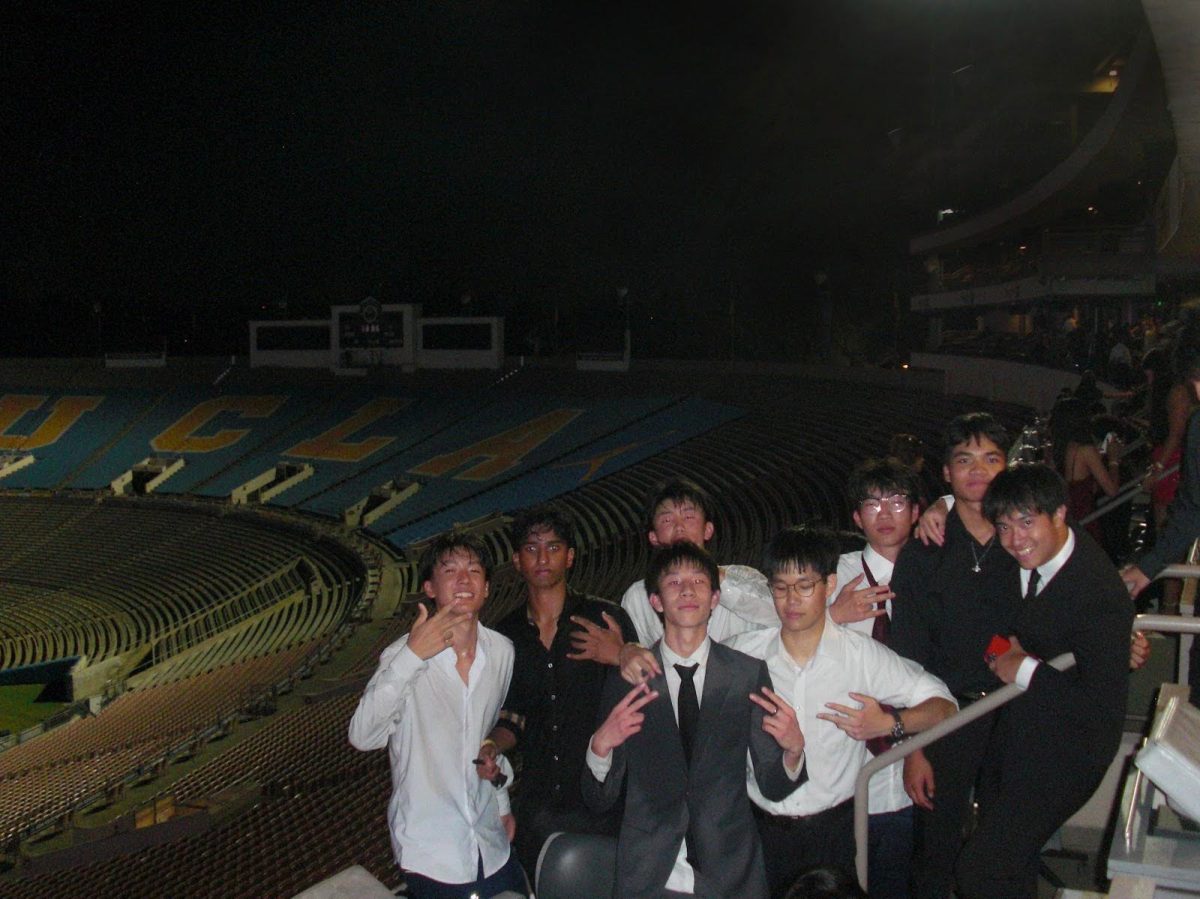Ruben Studdard and Clay Aiken will be coming to the Arcadia Performing Arts Center on Sept. 23 for their Twenty The Tour show. Student journalists Caroline Li and Michelle So interviewed the duo ahead of their Arcadia show. Tickets can now be purchased here.
Abridged Transcript:
Studdard: [hums a tune]
Aiken: Stop showing off!
Foran: Thanks everyone for being here! I’m Ryan Foran, the Chief Communications Officer for the school district. Our nonprofit foundation (The Arcadia Performing Arts Foundation) is hosting this concert (Twenty The Tour). We’re super excited to have Ruben and Clay coming up on September 23. Kicking off the tour, could you guys talk about the excitement for the tour starting in Arcadia, performing together, and just kind of your thoughts heading into the tour.
Studdard: I’m always excited to perform because it’s what I love to do. It makes it even more exciting when I get the opportunity to be on stage with a friend. We’ve been performing with one another ever since we met on American Idol 20 years ago. We have a lot of fun on stage and the energy is great. And I don’t have to sing for two hours straight. When you’re on the road alone, the performance all about you—all the singing and all the talking. But now I only have to perform half the time!
Aiken:
Perfect. That’s the best part of it all: we share the load. It’s sort of an “odd couple” match. We’re crazy different, but we both love the same thing. Most people don’t have the luxury or the blessing to be able to sing and tour for five years, much less still be doing it 20 years later! It’s also cool to be able to do a show that supports education and the educational system. Both of us have education backgrounds: I was a teacher myself before I went to American Idol. And both of Ruben’s parents are teachers and he’s a teacher at the college level. He’s got a foundation for arts and education and I have one for children disabilities. So, we’re always looking for ways to be supportive of educational programs.
Foran:
That’s fantastic. To think, 20 years later, you still get to do what you love. You still get to perform, be on stage, have a voice, and do this kind of thing. How crazy is that to think, besides where did the 20 years go?
Studdard:
Absolutely fortunate. Number one, because we get an opportunity inside the business to see how quickly people come and go. Directly after American Idol, we both were signed to subsidiaries of Sony RCA Records. There were 35 people that came in—
Aiken:
I don’t think the label exists anymore!
Studdard:
Nope, our label sure does not exist anymore! On the J Records roster at the time, it had to be at least 30 people. Of those 30, 10 of them may have had a number one or a chart records. It becomes a revolving door for us to do something that isn’t really dependent on the music industry at large. But we can do our jobs without depending on people buying or listening to our albums or our chart position on the on the radio. It’s been vitally important especially for to have had to do it for so long. We’ve been able to do things like Broadway, Ruben Sings Luther, and [clasps Aiken by the shoulder] government, and all kinds of things that are not dependent on people actually having to buy or stream our music.
Foran:
Very cool. Clay, do you want to add anything to that?
Aiken:
No, I think everything he said is actually perfect. We got lucky that we started in a place like American Idol. It gave us that jumping off point; most people only tour when they put a new album out, yet we’ve been lucky enough to be able to go on. Our first opportunity to sing on that show let us showcase enough versatility—musically—that set us up to be able to do a lot more things than most singers get to.
Foran:
That’s awesome! All right, we’ll hand it over to the students. We’ll start with The Quill.
So:
Our first question is based off of what Ruben said earlier about how, in your industry, things tend to come and go. I’d love to know more about the Ruben and Clay dynamic. How have you maintained your friendship throughout the years and how do you guys still stay in touch?
Studdard:
I think that our friendship is like any relationship: you have to communicate one another. We keep up with each other. Right after I left, we talked to each other more than anyone else that was on the show with us, with the exception of Kim Locke. But we kept in contact and we still do. Like outside of performing, we’re actually cool with each other.
Aiken:
Friendship is based on, one, having something in common that you like doing together, which we do. Every relationship also has a choice to make sure it works. We both made that choice 20 years ago and we commit to it. We argue, we disagree regularly. I get on his nerves, he gets on my nerves. It’s just the way any relationship is. At this point, we’re more important to each other. And I really mean that he’s more important to me. I imagine, I might be slightly important to him. [Studdard chuckles] I feel we are more powerful together than we are separately.
Sarkar:
We’re really excited to have you here Arcadia in a few weeks to kick off the tour in Arcadia at the Arcadia Performing Arts Center. Do you have any words of advice or encouragement for young performers who aspire to reach the same stages and accomplishments that you have?
Aiken:
One of the things that made us successful was being ourselves. My musical style was never necessarily “pop radio current” on Idol. Ruben has things about him that made us both not what the normal pop audience or pop executive was looking for. We weren’t trying to be something we weren’t and that’s what gave us an upper hand. I would try to impart that same message to young people today: be who you are and don’t try to be something you think other people will like.
Studdard:
To all young performers that are serious: take the things that your teachers are telling you to heart. There are things I learned in high school choir, middle school and high school band, and as a music education major in college that I still use now.
Aiken:
You should see him play the tuba on this show. It’s amazing.
Studdard:
Listen, we are not trying to give you a tuba album, I’m just not gonna do it. But, listen, I wouldn’t be where I am right now if it wasn’t for several great teachers. The reason behind my stage confidence isn’t because of my music teachers, it’s because of my middle school English teacher that put me on the debate team and made me do oratory competitions. I had to stand in front of people and be outside of my comfort zone. Now, when I git on stage to perform, I always felt comfortable.
Aiken:
And when you were in school, I would be willing to bet you didn’t realize, as they were teaching you or telling you to do this, that you would use it one day.
Studdard:
Absolutely.
Aiken:
And that’s what—which I’m sure you’re tired of hearing, you know, old people like us say—but it’s true. The things that you are given in school to do, you think “I’m never going to use this again in my life,” and look at you, you’re so good on stage because of your debate teacher and English class. So it does come in handy.
Sarkar:
You had performance together singing The Impossible Dream at the American Idol finale earlier this year? How did it feel to revisit the show as guest performers and share the performance with one another?
Studdard:
I’ve been back on the American Idol stage more times than I can count. It’s almost like going to a high school reunion. The people are still there, but in higher positions. There’s another conversation to have about always making sure that you’re making a good impression on people wherever you go—you never know who somebody will be 20 years from now. A young lady that was a production assistant when we were on the show is now the executive producer of American Idol.
Aiken:
We used to ask her to grab a coffee. Right now, we’re asking her if we can come on TV!
APN:
What’s special about this tour and was there any reason to start it off here in Arcadia?
Aiken:
What more do you need to be special, other than the two of us being there? It’s special because it’s the 20th anniversary and it’s special because it’s the first tour Ruben’s done in a minute. We’re doing songs that we did on the show 20 years ago. Your parents will be able to look back at the memories they made watching the show. For you and your friends, it’s an opportunity to hear the kind music that that we did back then. We try to pick songs that are classics and some of the greatest hits in the American Songbook Motown stuff and whatnot. And Arcadia is a great place to start because back in the early days of Hollywood, they used to bring movies to Arcadia and test them in the in the theater to “focus group” them.
Studdard:
Where’d you learn that!?
Aiken:
Reading. Reading is fun. Anyways, they would take them (the movies) to Arcadia because Arcadia’s got a great cross section of people and a great audience. Los Angeles is way too “LA snooty”. Arcadia is the perfect kind of… it’s all of it. Arcadia is America. It’s real America. It’s the real world. You’ve gotta get past Pasadena if you wanna get into real America.
Foran:
I love that. I’ve worked in Arcadia for 10 years; I had no idea. That’s impressive!
Li:
Thank you for the compliments for our city! Our question is, you guys have worn many hats throughout your careers—actors, singers, advocates—what has been your favorite aspects of the post American Idol career?
Studdard:
I have to say, one of my moments that I am extremely humbled and honored and amazed by is that, when we were on Broadway, one of the young people that went to my music camp for four years was in a show directly across the street from us.
Aiken:
Right.
Studdard:
And that was like, the coolest thing to know that the things that she learned in my music camp and the teachers that I brought in to give her instruction and just the influence of all the people I flew into Birmingham, Alabama. Because at that time, Birmingham was an entertainment desert, if that makes any sense. We have a lot of people that are from Alabama, but not a lot of people that come back and be like, “Hey, this is what I know, here’s how you do it.” And so that was my thing. And so I’ve had so many of my young people that have gone to my camp that are now teaching in music, performing in shows, doing all kinds of things, and that for me, is my biggest accomplishment. Past winning American Idol and doing shows and stuff. The fact that I get to have a positive influence in somebody’s life and really make a difference where they may not have had the opportunity is the greatest accomplishment for me.
Aiken:
And I think we’re at an age now—sadly, sorry. We’re at an age now where we are meeting more and more people who grew up on us, if that makes any sense. You know, when we were both back on Idol this past season, I did get to go back. Ruben’s gone back as a mentor in past seasons. I went back this last one. And you know, there were kids who are now competing on the show, the first time who had watched us on it 20 years prior, they’re 25 now, they were five then. We meet people a lot whose first concert was our American Idol tour. And it kind of makes me feel old, but at the same time I think it feels nice to realize that after 20 years we actually might have had some sort of impact, Mr. Studdard. Who knew!
Li:
One last question: What are your favorite ice cream flavors?
Studdard:
Butter pecan.
Aiken:
Oh, that would kill me! I’m allergic to tree nuts, but I’m a big cherry vanilla person. Black Cherry right now, but it always changes. Are you going to bring us ice cream?
Li:
If you guys do well. [Laughing]
Aiken:
Luckily for us, we always do!
Foran:
Thank you guys so much for doing this. We’ll see you in a couple of weeks!


